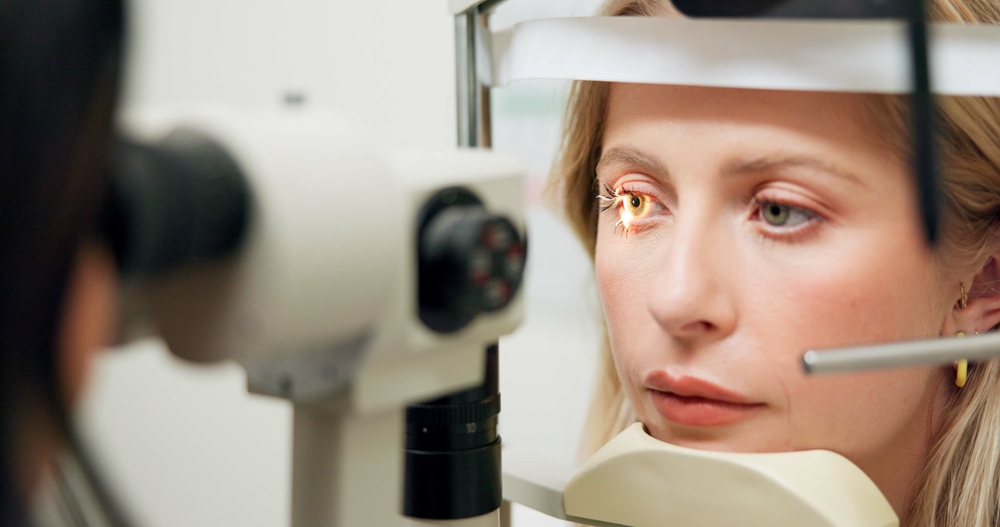Why Comprehensive Eye Exams are Essential
Blog:Why Comprehensive Eye Exams are Essential

Why Comprehensive Eye Exams are Essential
Your eyes are one of your most precious assets, and maintaining their health should be a top priority. A comprehensive eye exam is a thorough evaluation of your visual system, designed to detect any underlying issues or potential problems before they become serious. This comprehensive approach to eye care is essential for ensuring the long-term health and well-being of your eyes.
What Does a Comprehensive Eye Exam Involve?
A comprehensive eye exam is a multi-faceted evaluation that goes beyond a simple vision screening. It involves a thorough assessment of your visual acuity, eye function, and overall eye health. Here's what you can expect during a comprehensive eye exam:
Visual Acuity Test: This test measures your ability to see clearly at different distances, using an eye chart or other visual aids.
Refraction: The eye doctor will determine your precise refractive error, which includes nearsightedness (myopia), farsightedness (hyperopia), and astigmatism. This information is used to prescribe the appropriate corrective lenses, if needed.
Eye Muscle Evaluation: The doctor will assess the coordination and movement of your eye muscles, ensuring they are working together properly.
Eye Health Examination: Using specialized instruments, the eye doctor will examine the internal and external structures of your eyes, checking for any signs of disease or abnormalities.
Dilation: Your pupils may be dilated with eye drops to allow for a more comprehensive examination of the internal structures of your eyes.
Color Vision Testing: Your ability to perceive colors accurately will be assessed, which can help identify any color vision deficiencies.
Consultation: The eye doctor will discuss the findings of your comprehensive exam, provide recommendations for any necessary treatment or corrective measures, and answer any questions you may have.
Common Eye Conditions Detected During Comprehensive Eye Exams
Comprehensive eye exams are designed to identify a wide range of eye conditions, some of which may not have noticeable symptoms in the early stages. Early detection is crucial, as it allows for timely intervention and treatment, which can often prevent or slow the progression of vision-threatening diseases. Some of the common eye conditions that can be detected during a comprehensive exam include:
Refractive Errors: Nearsightedness, farsightedness, and astigmatism are the most common refractive errors, which can be corrected with prescription glasses, contact lenses, or in some cases, refractive surgery.
Cataracts: A gradual clouding of the eye's natural lens, which can lead to blurred or distorted vision.
Glaucoma: A group of eye diseases characterized by increased pressure within the eye, which can damage the optic nerve and lead to vision loss if left untreated.
Age-Related Macular Degeneration (AMD): A leading cause of vision loss in older adults, AMD affects the central part of the retina, known as the macula.
Diabetic Retinopathy: This condition, which can develop in people with diabetes, affects the blood vessels in the retina and can lead to vision loss if not properly managed.
Dry Eye Syndrome: A chronic condition characterized by insufficient tear production or poor tear quality, which can cause discomfort, irritation, and vision problems.
The Importance of Regular Eye Exams
Maintaining your eye health should be an integral part of your overall healthcare routine. Regular comprehensive eye exams are essential for several reasons:
Early Detection: Comprehensive eye exams can identify potential vision problems or eye diseases in their early stages, when they are often more treatable and manageable.
Baseline Measurements: Regular exams establish a baseline for your eye health, allowing your eye doctor to track changes over time and identify any concerning trends.
Prescription Updates: Your vision and eye health can change over time, so regular exams ensure that your prescription for glasses or contact lenses remains up-to-date and accurate.
Overall Health Monitoring: Comprehensive eye exams can also reveal signs of underlying health conditions, such as diabetes or high blood pressure, which can be detected through changes in the eyes.
Schedule Your Eye Exam with Texas State Optical, Lake Jackson Today
Your eyes are a precious resource, and maintaining their health should be a top priority. By undergoing comprehensive eye exams on a regular basis, you can take proactive steps to safeguard your vision and overall eye well-being.
Prioritize your vision and eye health by scheduling a comprehensive eye exam with Texas State Optical, Lake Jackson. Our eye care team is committed to providing quality eye care services and products for the entire family. Visit our office in Lake Jackson, Texas, or call (979) 297-8188 to book an appointment today.


